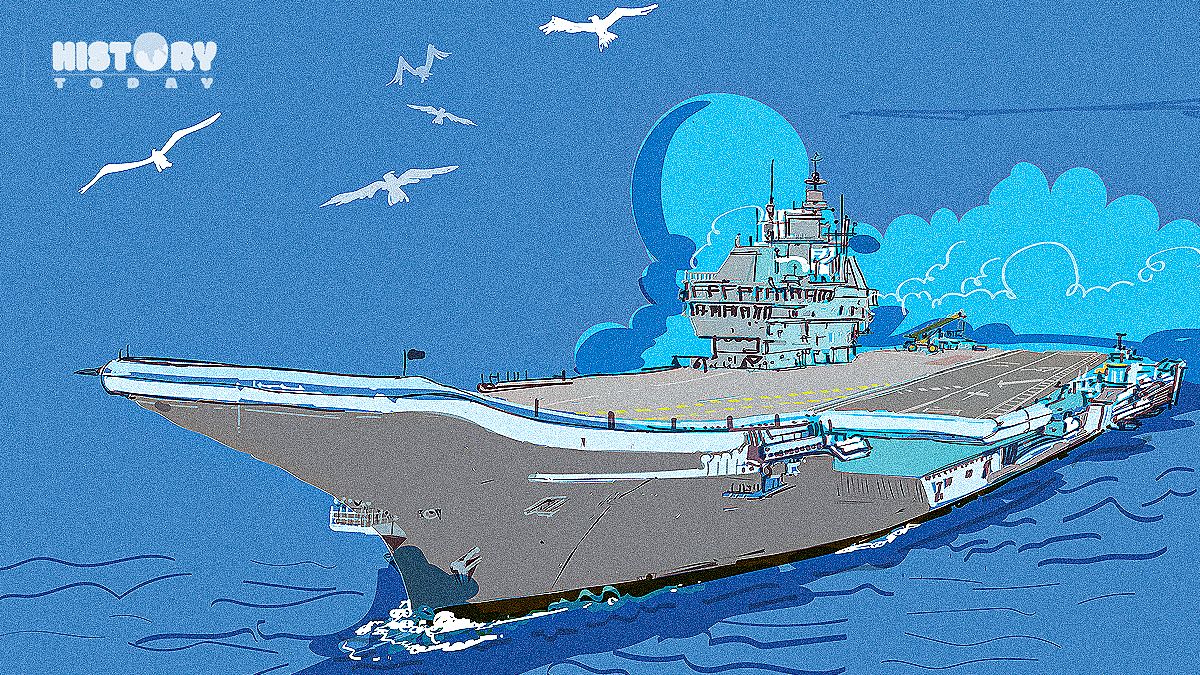India understood early on that it needed aircraft carriers to become a “Blue Water Navy,” a marine force with a worldwide presence and the ability to operate at great depths.
Since the 1960s, the Indian Navy has thus operated all variants of aircraft launch and recovery systems.
But, did you know that the Navy’s first-ever aircraft carrier, INS Vikrant, was commissioned on this day in 1961?
March 4 also reminds us of one of the world’s biggest controversies ignited by Beatles legend John Lennon who casually remarked about being “more popular than Jesus.”
Here’s all that and more in Firstpost Explainers’ _History Today_ series, which explores significant historical events.
First INS Vikrant commissioned
INS Vikrant, with pennant number R11, was the first-ever aircraft carrier operated by the Indian Navy.
The constitution was put on hold after World War II ended, and the ship, which was officially laid down in 1943, was being built for the Royal Navy as HMS (Her Majesty’s Ship (HMS) Hercules). India bought the then-under-construction HMS Hercules in 1957 when the British government placed it on sale, like several other vessels at the time.
On March 4, 1961, the ship was commissioned into the Indian Navy as INS Vikrant after the end of the construction. The word Vikrant, which meaning courageous in Sanskrit, has its roots in a number of texts, including the epic Bhagwad Gita.
The 19,500-tonne carrier, which was placed under the command of Captain Pritam Singh Mahindroo, operated its aircraft fleet with a catapult assisted system and ski-jump during its service.
Even after being commissioned, it was only a few months later, on October 6, that INS Vikrant sailed for India. The ship initially sailed from Belfast for Portsmouth and Portland to carry out sea trials.
The iconic vessel witnessed significant action during the 1971 war with Pakistan when it led the Naval blockade of East Pakistan.
The vessel emerged in a new avatar as a vertical/short take off and land (V/STOL) carrier in 1984, with the state-of-the-art aircraft Sea Harrier.
INS Vikrant was decommissioned in 1997 after 36 years of services and was preserved as a museum ship for over 15 years before being finally sold to be dismantled.
The commissioning of the latest indigenous aircraft carrier (IAC) INS Vikrant, thus, marks a significant milestone.
John Lennon’s ‘Bigger than Jesus’ scandal
This quote from the Beatles founding member John Lennon’s interview with reporter Maureen Cleave for the London Evening Standard, went from an observation to a scandal which ultimately threatened the band’s future.
In a four-part interview which featured individual profiles of each member on March 4, 1966, Lennon said, “Christianity will go. It will vanish and shrink. I needn’t argue about that; I’m right and I’ll be proved right. We’re more popular than Jesus now; I don’t know which will go first – rock ‘n’ roll or Christianity. Jesus was all right but his disciples were thick and ordinary. It’s them twisting it that ruins it for me.”
At the time, this was a simple observation about youth culture was shifting away from religion as openly admitted by the church.
While the content was enjoyed across the UK, five months later, American teen Magazine Datebook, which wanted to profile the Beatles in light of their newfound mature approach to music-making, picked up the quote and published it as a headline story with little from Cleave’s original feature.
It triggered a great furor across the state, drawing the ire of the American Christian community.
American radio stations started banning the Liverpool band, with Alabama DJ duo Tommy Charles and Doug Layton cheerleading the boycott.
The interview was published in America on July 29, 1966, and The Beatles had a tour in the United States planned for the entire month of August.
The timing couldn’t have been worse.
The Beatles decided to become a studio-only band after that, and it would be their final tour.
The US Constitution is put into effect
March 4, 1789, was also a historic day for the US when the official implementation of the Constitution took place.
Before that, the country was governed by the Articles of Confederation, which was tailored to a newly formed nation made of states acting more like independent countries.
The new constitution came into being after the Confederation Congress called for a convention and proposed to form a new government in 1787. After much ratification, Congress set dates for the first federal elections and the implementation.
Elections took place from December 15, 1788 to January 10, 1789, and the new government took charge on March 4, 1789.
America’s first presidential election was won by George Washington, and John Adams was elected Vice President.


)

)
)
)
)
)
)
)
)



